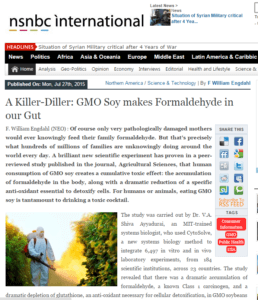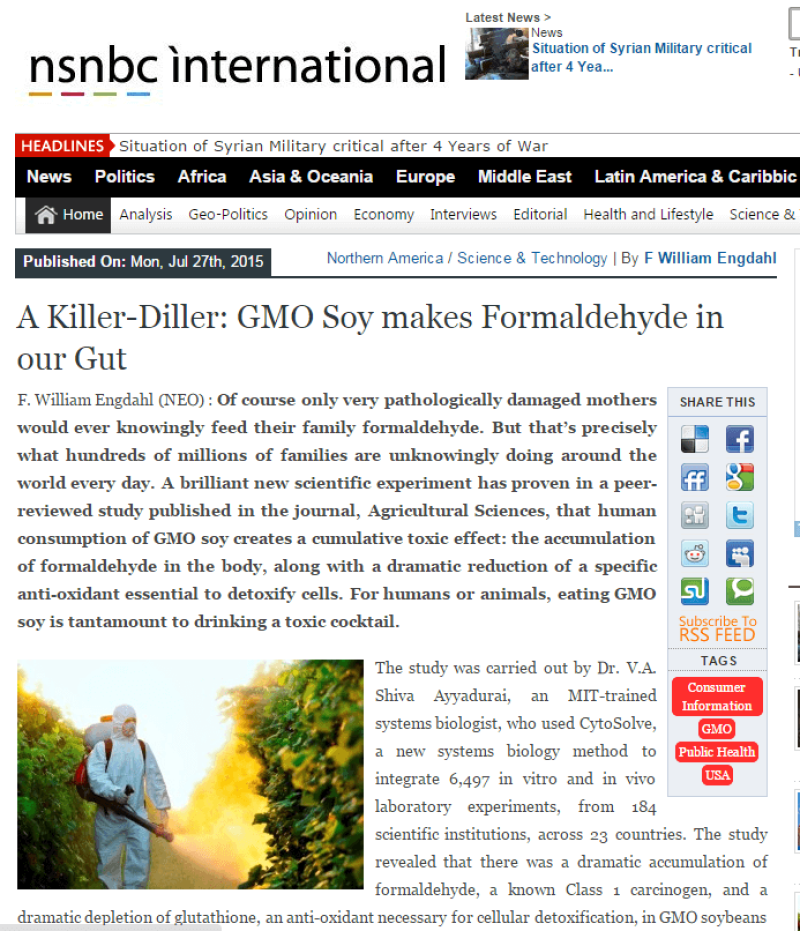The paper published in Agricultural Sciences by Shiva Ayyadurai presents a hypothesis that transgenic soybeans are high in formaldehyde and deficient in glutathione. The story is covered in the two previous blogs. I reached out to Ayyadurai and suggested that he come to Florida, we grind some beans, and actually do the test.
There has been no response, but he is certainly out playing up his findings as factual confirmation of formaldehyde in soy. Read the headline of this website:
It is creating fear about good food, something he has plenty of access to. It is elitist pandering to a credulous, activist movement that simply wants to create fear, and advance an agenda.
This instance underscores the damage of low-quality research finding ways into low-end journals. They have a patina of legitimacy and easy fool willing readers into overinterpretation.
For now, the offer to demonstrate the presence of his predicted formaldehyde in soy stands. The work will be done by an independent lab, identified yesterday, that is blinded to the sample identification. Glutathione levels will be measured using commercial kits, using student help, so we can teach how science is used to deceive for political gains.
The data will be open access and published in a real journal, with the hope to be a lovely example of how activists are invading our literature to push an agenda—not to use the scientific method to find the truth.
The GLP aggregated and excerpted this blog/article to reflect the diversity of news, opinion and analysis. Read full, original post: How Pseudoscience Propogates































